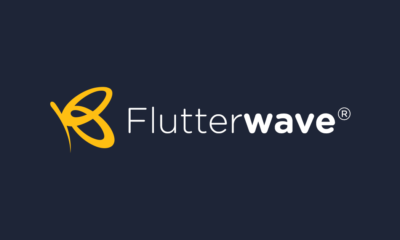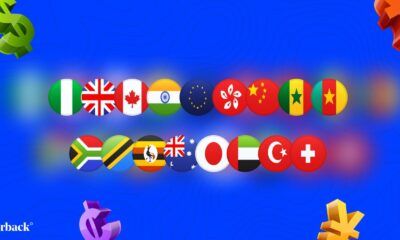Effective cross-generational communication with customers requires an excellent omnichannel strategy and chat is fast becoming the cornerstone for brands around the globe. But for many Nigerian organizations, chat channels still carry a degree of security hesitancy from consumers that will need to be overcome if they hope to reap the full rewards of chat commerce.
In a global multi-industry survey of 405 companies, Aberdeen Research in partnership with Clickatell, found that at least two-thirds of firms use chat and that those that use chat in commerce achieve superior financial results while delivering a better customer experience. This included a 75% improvement in annual revenue growth and a 48% bump in customer retention rates.
The chat opportunity for Nigerian organizations is also significant. WhatsApp is the most popular social media platform in Nigeria, with 93% of internet users aged 16 to 64 years using it. These numbers prove that chat is one of the most effective ways for businesses to reach the local population – a fact that has already been acted on by some forward thinking local banks which have embraced Chat Commerce, including United Bank for Africa (UBA), Guaranty Trust Bank (GTBank), First Bank of Nigeria (FBN), Fidelity Bank and Sterling Bank.
While there is a very clear business reason to use the more popular chat channels to communicate with customers, business leaders must also be aware that users may harbour some mistrust when it comes to sharing personal data over digital channels. A significant 64% of consumers recently surveyed for Clickatell’s Chat Commerce Trends Report said they’re “not sure” about security and confidentiality of chat apps.
“We are very comfortable exchanging information with our friends and family over chat, but for many customers, dealing with a bank or mobile network in this way is still a new concept. Businesses may need to spend some time educating customers around the safety of these channels,” explains Samson Isa, Director West Africa at Clickatell. “We need to repeat the message that buying a product, topping up on airtime, or buying electricity over WhatsApp is just as safe as shopping via a regular ecommerce store, or buying airtime or electricity tokens via your banking app or even at your neighbourhood’s store,” he says.
Not all channels are created equal
Isa says it is also important for businesses to choose the channels they use with care as each has its unique strengths and weaknesses.
So while Facebook Messenger has extraordinary reach, rich media capabilities and deep collaboration with its social cousin Facebook, it currently lacks end-to-end data encryption.
However, WhatsApp’s high level of security with end-to-end encryption makes it the preferred channel when it comes to sharing sensitive information.
“When it comes to WhatsApp, only the customer and the merchant can see what is in the communication. Customers are literally holding the encryption key in their hand. Now, technically encryption can be broken, but it’s incredibly expensive and just not worth it. It’s easier to hack your customers’ email to get their details, than it is to hack their WhatsApp messages,” Isa explains.
Isa says that financial services provide the perfect use case as to how to choose the correct channel based on the purpose of the communication.
In its Chat Commerce Trends Report, Clickatell identified the top three banking services consumers wanted via chat were customer support, account balances and bill payment.
The report notes that depending on security levels and other features, different channels are better for certain uses.
WhatsApp, Google Business Messages, and Apple Business Chat are best suited to customer care, account management and banking “lobby” experiences, such as scheduling appointments.
Facebook Messenger, meanwhile, was better suited to immersive user engagement and conversations, like answering customer questions that don’t require sensitive personal information.
SMS remained the most relevant for time critical notifications. However, Isa points out that SMS is most popular for outbound use cases such as appointment reminders, shipping notifications, flight confirmations, fraud alerts, or marketing campaigns but accounts for less than 2% of inbound business interactions.
Clickatell also advises merchants to consider obfuscating personal information in communications as an additional layer of customer protection.
By showing only the last few digits of an account or card number, for example, even if the message were to be intercepted, fraudsters would never have access to all the information. What’s more, this would add to the level of customer comfort, encouraging the acceptance and use of the chat channels.
“As businesses begin to embrace Chat Commerce and develop their strategies, they will have to strike a balance between robust security, usability and adoption. The selection of a messaging app that is best suited for their needs will depend on many factors from both a business and user perspective. Security and privacy must play a key role in the decision, especially when businesses exchange sensitive and personal information,” Isa advises.


 Forex2 weeks ago
Forex2 weeks ago


 Naira1 week ago
Naira1 week ago
 Naira4 weeks ago
Naira4 weeks ago
 Company News4 weeks ago
Company News4 weeks ago




 Naira1 week ago
Naira1 week ago




 Naira3 weeks ago
Naira3 weeks ago
 Billionaire Watch1 week ago
Billionaire Watch1 week ago




 Naira6 days ago
Naira6 days ago



















